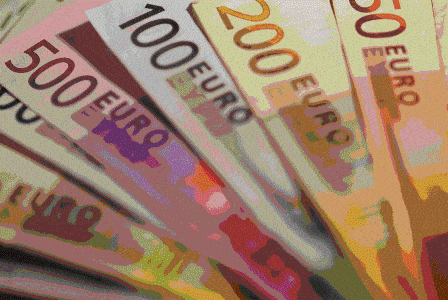As Europe still flounders in the mire of the GFC, it seems evident that the Euro experiment is a dismal failure, writes? NOEL G DE SOUZA

Imagine this scenario: a person lives moderately and they save diligently for retirement. By making sacrifices they put money into the bank. Then one day the government suddenly clamps restrictions on those savings, and they can only draw small amounts per day. Those savings are going to be punitively taxed (virtually confiscated) at 10%!
This is what has happened in Cyprus. When the initial shock of the announcement spread, there were large street demonstrations. The government, making policy on the run, then announced that on savings up to ?100,000, the tax would be around 6% whilst those with bigger deposits would pay 10%.
As it became clear that Cypriots with meagre savings were going to be severely hit by the taxes, persons with savings under ?100,000 were exempted, while those with over that amount would be even more harshly treated with losses of between 30% and an astronomical 60% from their accounts.
Cyprus is a divided island with periods of intercommunal violence between Greeks and Turks. In July 1974, a military coup in Cyprus aimed to establish a union with Greece (or ENOSIS). Turkey, one of the independence guarantors, protested to no avail. Five days later, Turkey launched a full scale invasion and conquered the northern (Turkish) area which is a little over a third of the island. It is doubtful if the Turkish area is much affected by what happens in the Greek zone.
In today’s globalised world, those with large assets find ?safe? places to park their money. Cyprus was one such haven. It welcomed money from foreign countries, notably from Russia and Britain. But now Cyprus has become the first member of the EU to impose sanctions on internal EU movement of money.
Russian money invested in Cyprus as well as Russian loans to Cyprus ($1.5 billion) are at stake. Talks between Cyprus and Russia have failed to resolve their financial disputes. It seems that sovereign countries have full control over assets located within their borders. Globalisation can now mean nothing in the face of sovereign might!
Also, assets within banks can now be virtually confiscated. Such appropriation of bank assets is not new. Recently Spain nationalised its prominent Bankia SA. The bank’s share value was drastically reduced from ?2 Euros to just 1?/cent, thereby punishing its shareholders. This loss of share value was a prerequisite for recapitalising the Bank.
Governments in several countries are trying to extract money from the rich to fund social demands. India, the world’s biggest buyer of gold, has imposed a 6% duty on gold imports. This reduced the appeal of gold and it fell in value, but this helped India’s balance of trade and its coffers got healthier.
Portugal and Spain have recently encouraged the buying of real estate in their countries. As an incentive, Portugal offers two free citizenships to foreign buyers. But buyers should be wary of taxation. France has imposed a heavy duty on real estate to help it to reduce its unpopular income tax which was hiked to 75%. That hike infuriated the famous actor Gerard Depardieu so much that he left France to settle in Russia.
Throughout Europe, many countries are introducing austerity measures at the expense of common people. The result is that Nationalist parties which preach independence from the European Union, are having a heyday. In Italy, Beppe Grillo, an anti-EU protagonist, now holds a key position in Italian politics. In Britain, the British Independence Party had success in elections for the European Parliament, as well as in local elections. Sub-continentals are amongst its supporters.
A UN report titled World Economic Situation and Prospects 2013 points out that world growth has been weak in 2012 and it expects the world economy to be subdued in 2013 with growth at 2.4%. Although Asia’s two giants: China and India are expected to reduce their once phenomenal growth, it will still be at high levels. India’s growth is expected to fall from 6.9% in 2011 to 5.5% in 2012, but to recover to 6.1% in 2013 and grow to 6.5% to 2014.
Sweden, a non-Eurozone country, has a strong currency (the kroner) helped by its thriving manufacturing and agricultural sectors. Perhaps each of the Eurozone countries would be better off and more responsible for their own affairs if they have their own currencies again.
The Euro experiment has become a dismal failure with non-democratic ?solutions? imposed on their people from outside. Cypriot President Anastasiades has accused Eurozone leaders of making “unprecedented demands that forced Cyprus to become an experiment”. Indians are found in most West European countries. Some of them like the steel mogul Laxmi Mittal have set up large industries. Others have smaller enterprises. For all of them there is much at stake.
Confiscation of savings leads to panic in Europe

Reading Time: 3 minutes




